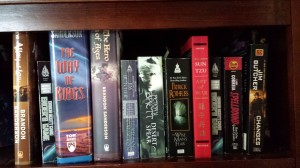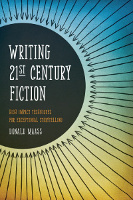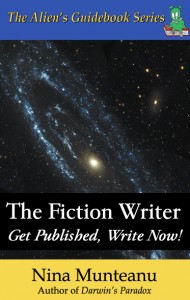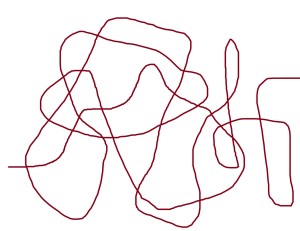I work insane hours. I will often spend as many as thirty to forty hours at a time on the job. One hundred or more hour weeks are the norm, not the exception. Don’t pity me. I knew what I was getting into when I took this position. In fact when I was recruited for this opportunity, I chose it over four others for the challenge it brought me. My recruiter was honest with me, and to this day, I believe that I went into that choice with my eyes open. I knew that I was committing to a lifestyle, not just a job. Even still, my work leaves me with precious little time for my two life goals.
First, I want to be an amazing father.
Next, I want to be a professional writer.
That’s it. If all that is written on my tombstone is, “He was a damn good father and writer,” well, then it would all have been worth it.
One of the major challenges of my life is making time. I gave up on finding it years ago. I’ve come to realize, that no one will ever make me a good father, or a professional writer. If I’m going to have the time for either of those things, I need to take it. Because of that struggle, what free time I do have is precious. The greatest gift I can give my loved ones is a small piece of the time that I carved out for myself.
There are a thousand things that demand my attention. Sometimes, it is easy to let all the noise of the world overwhelm my two life goals. My job, along with everyone else’s work, exists to further its own existence. We all come to work to make money for the company, and in turn, take some of those earnings back home with us. My job will never make me a professional writer. That’s not what we do. Achieving that ambition will never help the company’s bottom line. Because of this, my work will never give me time to write. If I’m going to have that time, I must seize it.
No one will ever give you time. No matter how much my significant other, my friends or my family love me and want me to succeed, they will never be able to give me the time I need to write. Because they love me, they want to spend time with me. Truth is, I want to spend time with them too. But at some point, I need to write. The very best my loved ones can do is give me space. That gift is a gift of love. What I do with that space is up to me. Do I take a nap? Do I catch up on my reading or those television shows I have been neglecting? Do I stare into the depths of my navel and think about writing?
Or do I work? Do I take that gift of love, that gift of space, and use it to make something?
In the end, one piece of advice that I can pass on from my own struggles is this: seize your dreams. No one will seize them for you. Even if they were so inclined, in so doing, they would be rendered meaningless. It is in the struggle that accomplishment translates into meaning.





